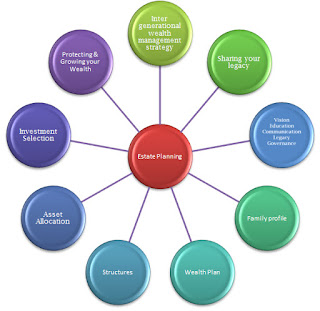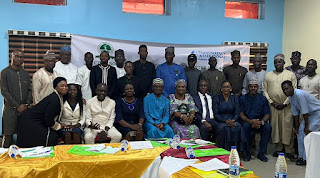Our primary health care system is in comatose – Akintayo
By: Chioma Umeha
Olumide Akintayo, is President, Pharmaceutical society of Nigeria (PSN). In this interview with CHIOMA UMEHA (HEALTH EDITOR) Akintayo tackles issues of fake drug distribution, primary health care among others. Excerpts:
 |
| Olumide Akintayo |
The PSN is critical in the efforts to bring sanity to drug distribution and eliminate fake drugs. What are you doing in this regard?
While we were campaigning, I came up with this blue print, a 13-point agenda. The totality of our plans to transform the health sector to the next level was documented in this package. It is not the direct responsibility of PSN to either come up with an agenda of restructuring drug distribution in Nigeria or eliminate fake drugs in the distribution chain. The PSN strictly speaking is a professional body and always tell people this. Because we are a professional, we do not have the requisite regulatory powers to restructure drug distribution among others. There are agencies of the federal government which have a direct statutory mandate to regularize the drug distribution channels; agencies like Pharmacists Council of Nigeria (PCN) and National Agency for Food and Drug Administration and Control (NAFDAC) which is a more popular one at least to members of the consuming public. So these are the agencies of government that have direct statutory mandate or responsibility to carry out those things you are talking about.
While we were campaigning, I came up with this blue print, a 13-point agenda. The totality of our plans to transform the health sector to the next level was documented in this package. It is not the direct responsibility of PSN to either come up with an agenda of restructuring drug distribution in Nigeria or eliminate fake drugs in the distribution chain. The PSN strictly speaking is a professional body and always tell people this. Because we are a professional, we do not have the requisite regulatory powers to restructure drug distribution among others. There are agencies of the federal government which have a direct statutory mandate to regularize the drug distribution channels; agencies like Pharmacists Council of Nigeria (PCN) and National Agency for Food and Drug Administration and Control (NAFDAC) which is a more popular one at least to members of the consuming public. So these are the agencies of government that have direct statutory mandate or responsibility to carry out those things you are talking about.
For instance, it is within the purview of the responsibility of Pharmacist Council of Nigeria to register pharmaceutical premises based on a written code. It is the responsibility of NAFDAC to approve drug or food products that can be sold in these registered pharmaceutical premises. So it is NAFDAC that have direct responsibility in terms of restructuring the drug distribution channels. Then of course, you have agencies like PCN, the Federal Task Force of Fake and Counterfeit Drugs and the various states task forces of fake and counterfeit drugs; these are the ones that have the direct mandate to tackle the menace of the fake drug syndrome in Nigeria. Based on Section 111a of Pharmacists Council of Nigeria act, that agency has powers to prescribe minimum standards for operators of pharmaceutical premises, be they patent medicine; for instance to say look; ‘you cannot do this, you can do this and if the operators fail to comply with those directives of PCN, PCN can decide to seal such premises. Like I said, it has powers to regulate and control. It’s a government responsibility. Don’t forget that drug matters are on exclusive list. The implication is that it is only agencies of Federal government of Nigeria which have powers to run these processes.
These include: NAFDAC, PCN and National Drug Law Enforcement Agency (NDLEA).
But having said that, we are major stakeholders in this process and that is why naturally these questions will naturally continue to come. Our responsibilities in the area of advocacy to continue to put pressure on these government regulatory agencies to do the needful at all times to support them and make sure our members live up to the expectations of their callings as pharmacists. Also, to sensitise other stakeholders; patent medicine dealers, support staff and pharmacies and the consuming public on where to source drugs, things to look out for among others. I can assure you that the Pharmaceutical Society of Nigeria has never failed in carrying out these responsibilities.
How do you ensure professionalism among your members?
What we try to do is that we tell clients, consumers of medicine, if you want to source for genuine drugs, look out for pharmaceutical premises where you see the green cross emblem with PSN No. Any where you see such things; PSN can vouch for the provision of good quality services in such places. PCN has also come up with another regulatory tool for patent medicine dealers. In Nigeria today, those are the only two levels of providers who are empowered to sell drugs to the consuming public. The beauty of it is that it is within your rights as a consumer to ask for the license, the certificate of registration of that premises, by virtue of the regulations of PSN, it is the original copy that is supposed to be displayed conspicuously in the pharmaceutical premises. So you can ask to be sure that the place is registered. It is also your right to ask for the superintendent pharmacists on duty. Pharmacists are actually the most accessible and cheapest professionals you can consult without any charges or a fee. If there are problems, if you bring such report to PSN, we can trace that pharmaceutical premises and make appropriate recommendations to the regulatory agency. This is possible because it is registered and known in law. There is a value when you patronize pharmaceutical premises.
How can this country weed out the issue of fake drugs?
The only sensible thing to do is to adhere strictly to provisions. Sometimes I’m embarrassed myself because the very first in the series of legislation or acts of parliament designed to tackle fake drugs menace was promulgated way back in 1988. That is some 25 years ago, that law, specifically section 21prohibits the sales of drug in unregistered pharmaceutical premises and places like markets, kiosks, drug hawking, moving forms of transportation, ferries, buses etc, but me and you know that those things happen.
Now what has happened to us as a society?
Probably, this is beyond the pharmaceutical sector, we have a plethora of laws to tackle a lot of social vices we contend with, but somehow the spirit of enforcement has been lax. Probably, this is another opportunity to appeal to federal government to support these regulators, give them tools to work, financial resources and logistics. In Lagos state where I practice, I can tell you that as far back as 2000, in erstwhile 20 Local Government Areas (LGAs) of Lagos state; we carried out a survey in the PSN Lagos branch; we put on record the existence of more than 112,000 illegal premises. Today, I can imagine that it will be two or three times what it was 12 years ago. So there is a ready incentive to perpetrate evil, the evil of spreading unregistered premises because it is obvious that the regulators are not pro-active, probably not because of their own making, but because government too continues to shirk in its responsibilities of sustaining these regulatory structures that have been created through Acts of Parliament. The appeal still goes back to government to do the necessary things, so that we can begin to sing Hallelujah with respect to changing the status quo.
Why has the country remained a dumping ground for fake drugs?
I’ve said it that there is ready incentive to perpetrate or do wrong things; violate Acts of Parliament. Human nature is such that people will never conform; the major difference between the climes they classify as developed nations and ours is that there are people who enforce the law all the time in those climes; people know there are consequences; there are sanctions that will be applied immediately you violate any law. I remember the pioneer Director-General of NAFDAC, way back in 1995 had declared to the National Council of Health, that the major sources of fake drugs in Nigeria are the plethora of drug markets. That is a whooping 18 years ago, those same drug markets has continued to exist; in fact more has come on board. As at 1988, when the fake drug Acts was promulgated by the military, there were about four major drug markets; Ariria in Aba, Head-Bridge, Onitsha, Sabon- Geri, Kano and Idumota, Lagos. But today, we have 27 documented drug markets and more springing up by the day, because government has not been pro-active in dealing decisively with the existing ones. The fake drug law says; prohibition of drug sales in certain places and locations listed in Section 21 of the fake drug Act; and then people are doing exactly that unhindered.
Access the primary health care in the country?
There is no such tier as primary health care in this country. That is truth; it is not non-existent in the ideal context. Yes, there are agencies called primary health care, but, in reality do we have a tier of health care called primary health care? My answer is, ‘no’ that is why basic things are failing in Nigeria, for instance; immunization- you talk of oral polio, why is it impossible to tackle that menace? This is because primary health care structures have failed us.
Why is it called primary?
This is because it is first level; the basic things are done at this level.
This is because it is first level; the basic things are done at this level.
Who are the first-level health-care providers?
You think of pharmacists, doctors to a lesser extent, probably nurses and community health care workers.
Ask yourself; if you have headache this afternoon, where do you go to? You go to a community pharmacy to ask for Paracetamol tablet, that is the number one level of intervention for treatment globally. But because we play stupid politics in Nigeria we’ve refused to recognize such places and these are some of the reasons primary health care is failing. Immunization for instance, 80 per cent of immunization basic endeavors is carried out in community pharmacies in US and it is working, including their drugs. But in Nigeria if you mute it, some people are ready to die. And these are reasons why it is failing. You need to bring community pharmacists into primary care endeavors if you want it to work. Like I said, they are the first level of treatment in the global level. If you have malaria, the first place you will go is a pharmacy. You can imagine if you involve such providers to take care of immunization, because a pharmacy today is a centre for health advocacy and health promotion; wellness and disease prevention as well as control. This is because the pharmacist has been trained to tackle all of those things. If you allow him to conduct immunization, all the ‘doubting Thomases’ can be better convinced. Globally, only Nigeria and India alone account for 40 per cent of infant and maternal mortality rates.
Ask yourself; if you have headache this afternoon, where do you go to? You go to a community pharmacy to ask for Paracetamol tablet, that is the number one level of intervention for treatment globally. But because we play stupid politics in Nigeria we’ve refused to recognize such places and these are some of the reasons primary health care is failing. Immunization for instance, 80 per cent of immunization basic endeavors is carried out in community pharmacies in US and it is working, including their drugs. But in Nigeria if you mute it, some people are ready to die. And these are reasons why it is failing. You need to bring community pharmacists into primary care endeavors if you want it to work. Like I said, they are the first level of treatment in the global level. If you have malaria, the first place you will go is a pharmacy. You can imagine if you involve such providers to take care of immunization, because a pharmacy today is a centre for health advocacy and health promotion; wellness and disease prevention as well as control. This is because the pharmacist has been trained to tackle all of those things. If you allow him to conduct immunization, all the ‘doubting Thomases’ can be better convinced. Globally, only Nigeria and India alone account for 40 per cent of infant and maternal mortality rates.
Why?
There are basic tips that can be handled by providers in the community, because the truth is that you don’t have doctors at some of those levels. If we want to get it right, we need to bring all providers who have some level of expertise to offer; we need to recognize them; we need to certify them as primary care centers so that the concept of primary care will work. What we are doing today is a charade, because we play stupid politics, ridiculous politics and people who should know rather than apply themselves as statesmen allow themselves to be hoodwinked along the narrow perspective of professions they belong to and it is tragedy for this country. I am saying that with a sense of responsibility; primary health care has always failed and it will continue to fail because of our attitude, the way we run it. Look at the National Health Insurance Scheme (NHIS); you merge health care facilities together, you should not merge secondary and tertiary care facilities. The only level of health care that can be merged is social health care insurance and those that belong to primary care. If you are looking at it from that perspective it should be a doctor’s clinic. Anything that has more than a clinic that is a consulting room is no longer a primary care centre. The moment you have a pharmacy and laboratory, it is no longer a primary care centre. That is why we need to go back to the drawing board to go and repackage what truly constitute primary care in Nigeria.
The issue of primary care has allowed both secondary and tertiary to fail. People merge specialist hospitals with primary health care centres. In places like National Hospital, Abuja or Lagos University Teaching Hospital (LUTH), people go there to treat malaria. This is because 60 per cent of clinical visitations in Nigeria are malaria-based, so naturally people will go there to treat malaria. That distracts a tertiary institution from its core mandates of research, training among others. That is why people who should actually see specialists or pharmacists, for instance, those who have serious cardiovascular situation find it difficult to get appointments within days. You are dying and you have Comprehensive Heart Failure (CHF) and you are given an appointment for six weeks to see a consultant. So these are problems and we need a whole range of reformation and you know part of the problem with health care in our country is that people tend to equate a whole multi-disciplinary sector, like the health sector to a baby or platform of only one profession. Rather than reckon with a multi-disciplinary range of professionals, who have expertise and inputs in coming up with health policies, plans and designs; we factor the input of one profession, then we fail ab initio. That is why we have continued contend with systemic failure; a cycle of delinquency in the health care industry.
What is the way out?
Create a level-playing ground.
This story was published in Daily Newswatch on May 16, 2013.



Comments
Post a Comment